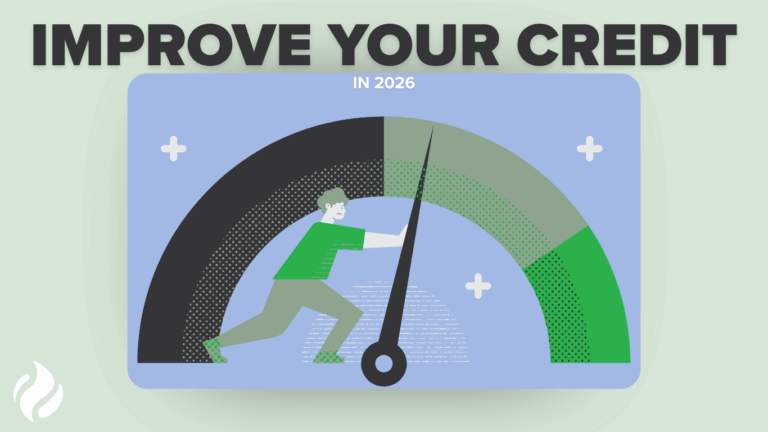Ultraviolet: Uv Rays Play A Crucial Part In The Functioning Of Solar Panels
Unseen Power: Ultraviolet Radiation and Solar Panel Efficiency
Ever pondered the magnitude of energy the sun bestows upon us? Ultraviolet radiation, invisible to the human eye, is a significant chunk of that energy. Interestingly, it’s a double-edged sword for solar panels.
Ultraviolet Radiation: A Silent Actor
Not all sunlight is created equal. Solar panels primarily convert visible light into electricity, but what happens to the ultraviolet (UV) light? As it turns out, it’s a complicated relationship. UV light, while accounting for a small portion of the sun’s energy, plays a notable role in solar panel efficiency.
UV Light: The Unseen Catalyst
- While visible light is directly converted into electricity, UV light causes the atoms in a solar cell to vibrate, creating heat. This heat can enhance the panel’s performance.
- On the flip side, excessive UV radiation can lead to faster degradation of solar panel materials, impacting their longevity.
Striking a Balance
So, how do we maximize the benefits and minimize the drawbacks of UV radiation exposure in solar panels? Enter solar cell efficiency measures. Modern solar panels come equipped with UV-protective coatings to strike a balance.
The Future of UV and Solar Panels
Advancements are continually being made in the realm of solar technology. Imagine a future where solar panels not only effectively utilize visible light, but also convert UV radiation directly into electricity, revolutionizing the landscape of renewable energy. A lofty dream, or a glimpse into the not-too-distant future?
Impact of Ultraviolet Light on Solar Panels
Ever wonder why solar panels are dark blue or black? It’s not just for aesthetics. These hues are adept at absorbing ultraviolet (UV) light, significantly enhancing their power production. The influence of UV light on solar panels is indeed an intriguing subject.
Yet, it’s a double-edged sword. On one hand, UV light increases the output of the solar panels. On the other, the panels degrade over time due to UV exposure. It’s nature’s own version of give-and-take, isn’t it?
Efficiency and UV Light
UV light possesses high energy that can cause electrons to move more rapidly. This translates into higher efficiency for the solar cells. Yet, the impact isn’t all rosy. Prolonged exposure to UV light can lead to what we call ‘solar cell ageing’. A unique term for wear and tear, don’t you agree?
Ageing of Solar Cells
‘Solar cell ageing’ – a phenomenon where the solar cells degrade due to prolonged exposure to UV light. The high-energy UV light can cause micro-cracks and degradation in the solar cells, thereby reducing their lifespan. It’s like the sun giving power but taking away the longevity of solar panels!
- UV light boosts solar panel efficiency
- Long-term UV exposure leads to ‘solar cell ageing’
In the grand scheme of things, the pros and cons of UV light on solar panels balance each other out. The power boost is worth the trade-off of a slightly reduced lifespan. After all, isn’t it fascinating how the sun both fuels and wears out the very technology created to harness its power?
Protective Measures Against Ultraviolet Degradation
Ever experienced sunburn? Then you’ve felt the sting of ultraviolet (UV) radiation. But did you know that UV rays, invisible to the human eye, can also degrade solar panels over time? The story isn’t all gloom, however. Humans have developed protective measures to shield these renewable energy sources from UV damage. Let’s delve in, shall we?
UV-Resistant Coatings
The first line of defense is UV-resistant coatings. These are specially designed materials that can absorb or reflect the majority of UV radiation, thereby reducing its harmful effects. Think of it as sunscreen for your solar panels. How effective is this? Well, you’ve probably heard the saying, “An ounce of prevention is worth a pound of cure.” In this case, it’s true.
Use of Robust Materials
Another strategy is the selection of robust materials. Certain materials, such as tempered glass and high-quality plastics, exhibit natural resistance to UV radiation. It’s akin to wearing a hat on a sunny day. The hat doesn’t prevent the sun from shining, but it does help shield your face from direct exposure, right?
Periodic Maintenance
Lastly, periodic maintenance is crucial. This includes regular cleaning and inspection to detect and address early signs of UV degradation. Regular maintenance might seem tedious, but isn’t it better to be safe than sorry?
While the fight against UV degradation may seem like a daunting task, these protective measures offer a beacon of hope. From UV-resistant coatings to robust materials and regular maintenance, we’re well-equipped to protect our solar panels from UV damage. After all, wouldn’t you want to maximize the lifespan of your investment?
Ultraviolet Exposure and Solar Panel Lifespan
Ultraviolet (UV) radiation, a sunlight component, is a critical factor to consider in the lifespan of solar panels. But why is this so?
UV Radiation: A Silent Factor
UV radiation, though invisible to the human eye, is omnipresent in our environment. It’s the same radiation that causes suntans and sunburns. Now, imagine this radiation constantly beating down on your solar panels. Over time, this prolonged exposure can result in a phenomenon known as photo-degradation.
- Photo-degradation: This is the breakdown of materials under the influence of light, particularly UV radiation. In solar panels, this can lead to decreased efficiency and, over time, a reduction in energy output.
How Solar Panels Tackle UV Radiation
On the bright side, modern solar panels are designed to withstand UV radiation. They are equipped with anti-reflective coatings and encapsulant materials to protect against UV-induced wear and tear. Do these efforts completely mitigate the impact of UV radiation?
The answer, unfortunately, is no. Despite these measures, UV radiation continues to be a significant factor in the lifespan of solar panels. But the good news? The effects of UV radiation on solar panels are usually accounted for during their production, ensuring that your panels will still function efficiently for many years.
Considerations for Solar Panel Owners
So, what can solar panel owners do to maximize the lifespan of their investment? Regular maintenance and periodic checks can be beneficial. When was the last time you inspected your solar panels? Do you notice any discoloration or warping, signs of UV-induced damage? Awareness and timely action can make a significant difference.
In conclusion, UV radiation is an unavoidable aspect of solar energy generation. But with proper care and maintenance, your solar panels will continue to serve you well, long into the future.
Harnessing Ultraviolet Radiation for Solar Energy
Ever pondered the power of the ultraviolet (UV) radiation we receive from the sun each day? It’s quite a marvel, isn’t it? UV rays, though harmful to our skin, are a goldmine when it comes to solar energy production. But how?
The magic happens within the heart of solar panels. Here, a unique dance of light and matter unfolds. UV radiation, despite making up only a small fraction of the sun’s total energy, packs a powerful punch. It’s this intensity that allows us to harness UV energy effectively.
The Role of Solar Cells
Picture this: a mesmerizing ballet of photons and electrons where solar cells play the lead. These cells absorb UV rays, sparking an electric charge that generates power. This process, known as the photovoltaic effect, is the fundamental mechanism behind solar energy production.
Common Misconceptions
- Many believe that solar panels are only effective in hot, sunny climates. However, it’s the UV radiation, not heat, that matters most.
- Another misconception is that solar panels cease to function on cloudy days. While it’s true that cloud cover can diminish UV radiation, it doesn’t eliminate it entirely. Solar panels can still generate power, albeit at a reduced rate.
The Path Ahead
While we’ve made strides in harnessing UV radiation for solar energy, the road ahead promises even more innovation. Consider this: what if we could boost the efficiency of solar panels by enhancing their UV absorption capabilities? Exciting times lie ahead in the realm of solar energy, don’t you think?
Ultraviolet
Pronunciation: ˌəl-trə-ˈvī-lət
Definition:
Ultraviolet (UV) is a form of electromagnetic radiation with wavelength from 10 nm (with a corresponding frequency of approximately 30 PHz) to 400 nm (750 THz), shorter than that of visible light but longer than X-rays. UV radiation is present in sunlight, and constitutes about 10% of the total electromagnetic radiation output from the Sun.
Use in Sentence:
The UV rays from the sun can cause skin damage.
Etymology:
The term “ultraviolet” means “beyond violet” (from Latin ultra, “beyond”), violet being the color of the shortest wavelengths of visible light.
In Science:
Ultraviolet light has many practical applications including the sterilization of medical and dental tools, creating fluorescent effects, curing inks and resins, phototherapy in medicine, and in the detection of substances tagged with fluorescent dyes.
Related Terms:
UV Index, UV Radiation, UV Rays, UV Light.
For more information about Ultraviolet contact Lumina Solar today.
Useful Links
Parallel Circuits, Diode, Automobile Auxiliary Power Outlet, Usb, Solar Cell Efficiency, Electromagnetic Spectrum, Ultraviolet, Infrared, Monochromatic, Irradiance, W/M2, Spectrum, Airmass, Solar Irradiance, Soiling (Solar Energy), Open-Circuit Voltage, Short-Circuit Current, Watt-Peak, Voltmeter, Potential-Induced Degradation, Boron, Photovoltaic Mounting System, Solar Power Plant, Agrivoltaics, Bifacial Solar Cells, Solar Canopy, Solar Array, Patio Cover, Zenith Angle, Azimuth Angle, Occupational Hazards Of Solar Panel Installation, Cadmium Telluride, Gigawatt, Gigawatt, Experience Curve Effects, Photovoltaics, Grid Parity, Mains Electricity, Balance Of System, Solar Energy, Applications Of Photovoltaics, List Of Solar-Powered Products, Photovoltaic Power Station, Solar Hybrid Power Systems, Concentrated Photovoltaics



